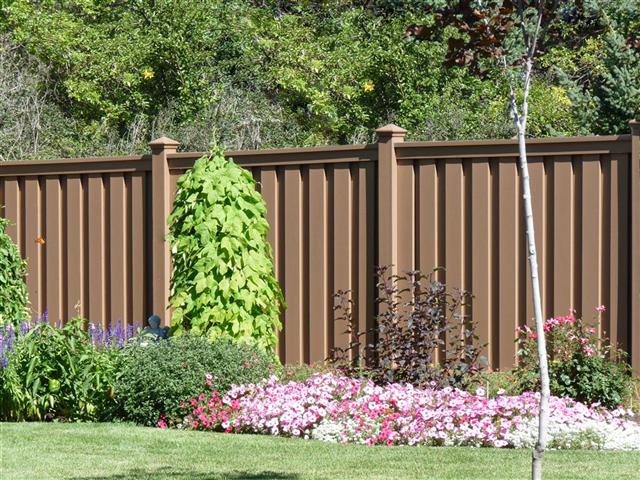All Categories
Featured

When installing a fencing, picking the right product is key to balancing capability, appearances, and budget plan. Timber, plastic, and light weight aluminum are among one of the most typically picked secure fencing products, each with its toughness and downsides. This overview checks out the benefits and drawbacks of these choices to help you make an informed choice.

Wood Fencing. Pros:. All-natural Appeal: Wood's classic charm can enhance any type of home with its warm and traditional appearance. Adjustable: You can paint, stain, or carve wood to fit your style preferences. Economical: Wood fencing is at first more affordable compared to some various other materials. Eco-friendly: As an eco-friendly resource, timber is naturally degradable and often thought about environment-friendly. Disadvantages:. Maintenance-Intensive: Routine securing, paint, or discoloration is called for to avoid damages from weather and insects. Prone to Degeneration: Without correct care, timber can rot, warp, or crack with time. Much shorter Life-span: On average, timber fencings last 10-15 years, depending on the type of wood and maintenance. Wood is a fantastic alternative for those who value visual appeals and want to purchase routine upkeep to preserve its look and durability.
Vinyl Secure Fencing. Pros:. Low Upkeep: Plastic requires minimal care-- just occasional cleaning with soap and water. Climate Resistant: It does not warp, rot, or surrender to insect damages, making it very durable in numerous climates. Durability: Plastic fencings can last 20-30 years with little to no repair work. Style Range: Available in a large range of shades, structures, and designs, including wood-like appearances. Disadvantages:. Greater Preliminary Cost: Vinyl fences are extra costly upfront contrasted to timber. Vulnerability to Cold: In incredibly cool climate, vinyl can become prone and fragile to fracturing. Limited Repair Service Options: Matching substitute panels can be testing if damages takes place. Plastic fencing is suitable for property owners trying to find a resilient, low-maintenance remedy that provides modern-day adaptability.

Aluminum Secure Fencing. Pros:. Rust-Proof: Aluminum resists rust, making it a superb selection for damp or humid settings. Sturdy: Despite being light-weight, light weight aluminum is solid and can withstand extreme weather. Reduced Maintenance: It calls for marginal maintenance, typically just periodic cleaning. Long Lifespan: Aluminum fencings can last years without substantial deterioration. Stylish Design: Commonly used for decorative functions, aluminum fencing adds a streamlined, advanced seek to residential or commercial properties. Cons:. High Initial Investment: Light weight aluminum fencings are amongst the pricier choices on the market. Much less Personal privacy: The open styles usual with aluminum fencing don't supply much privacy. Prone to Damages: While sturdy, aluminum can dent if struck with adequate pressure. Light weight aluminum is a superb choice for house owners focusing on visual appeals and longevity without needing much upkeep.
Making Your Choice. When determining between wood, light weight aluminum, or plastic fence, consider your top priorities:
Wood suits those who value an all-natural appearance and don't mind placing in upkeep effort. Plastic is the best alternative for those looking for a low-maintenance, weather-resistant remedy. Aluminum provides sleek design and lasting longevity yet might do not have personal privacy. By very carefully evaluating these products' attributes, you can pick a fence that enhances your property while satisfying your useful and aesthetic demands.
Latest Posts
Add Convenience and Character to Your Home with Area Rugs
Published Apr 20, 25
1 min read
Keep Your Carpeting Looking Its Finest with Easy, Specialist Care
Published Apr 20, 25
1 min read
Meet the Skilled Technicians Behind Montclare Auto Repair - Dedicated to Quality
Published Apr 20, 25
2 min read
More
Latest Posts
Add Convenience and Character to Your Home with Area Rugs
Published Apr 20, 25
1 min read
Keep Your Carpeting Looking Its Finest with Easy, Specialist Care
Published Apr 20, 25
1 min read
Meet the Skilled Technicians Behind Montclare Auto Repair - Dedicated to Quality
Published Apr 20, 25
2 min read